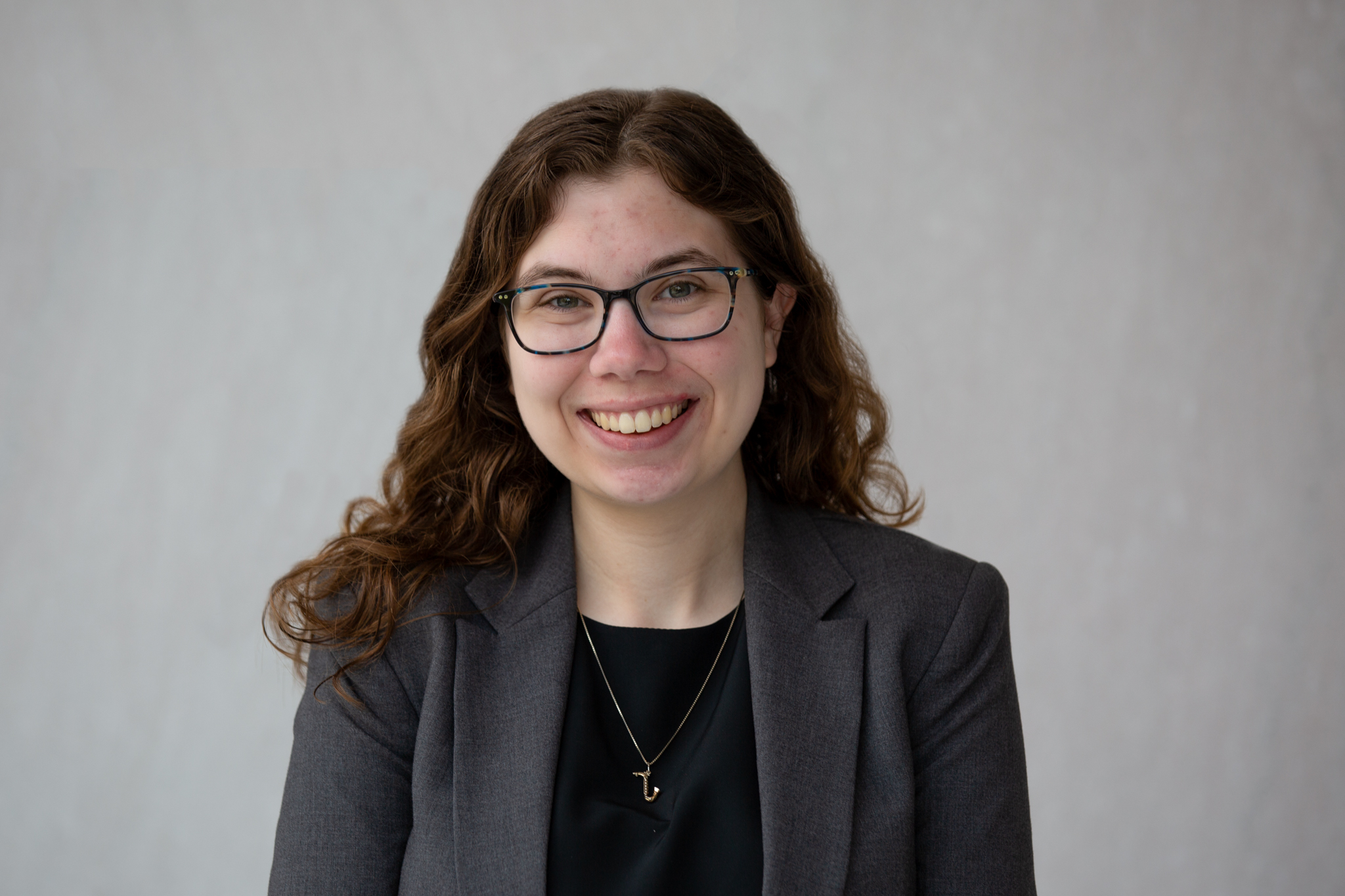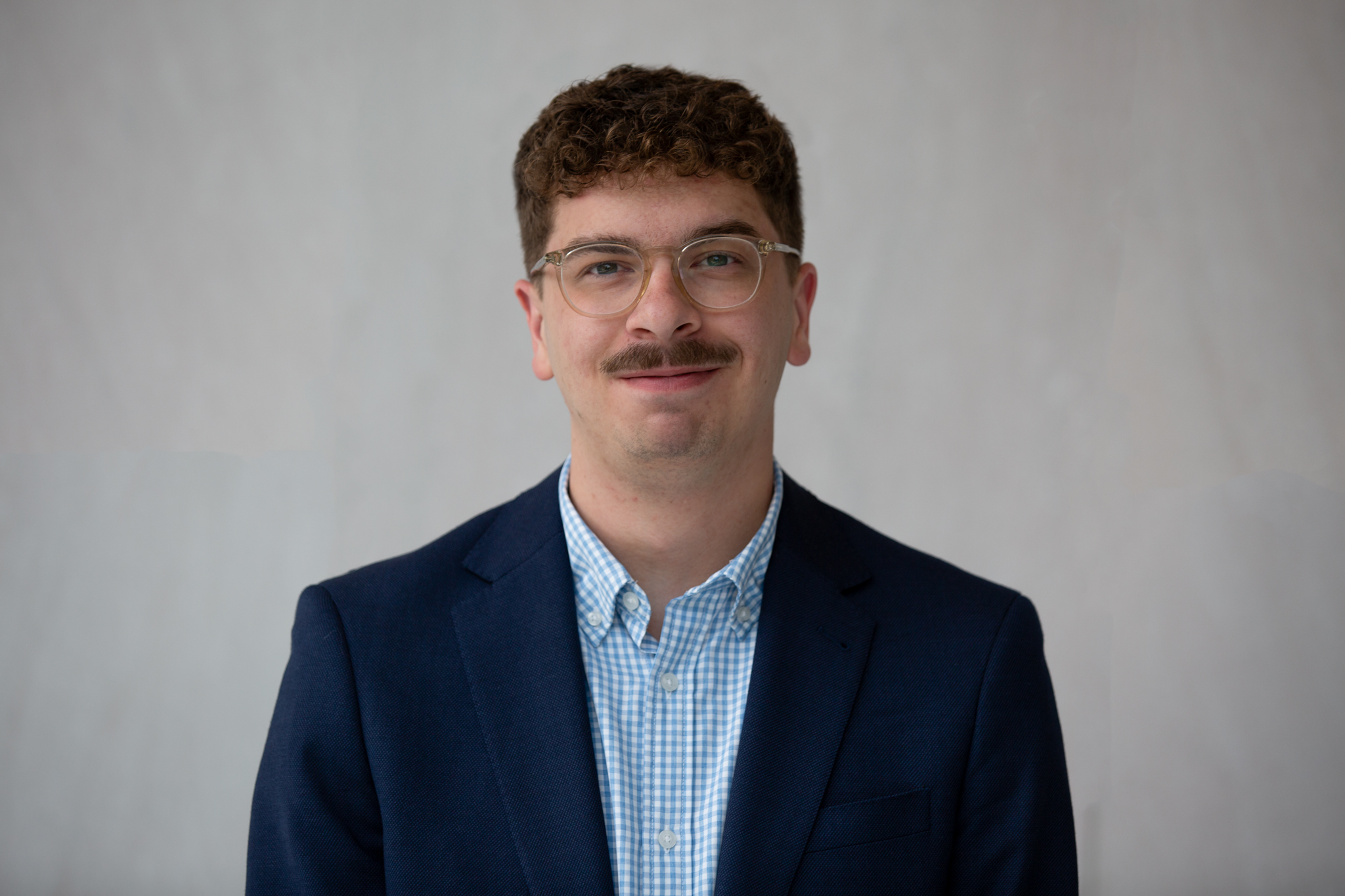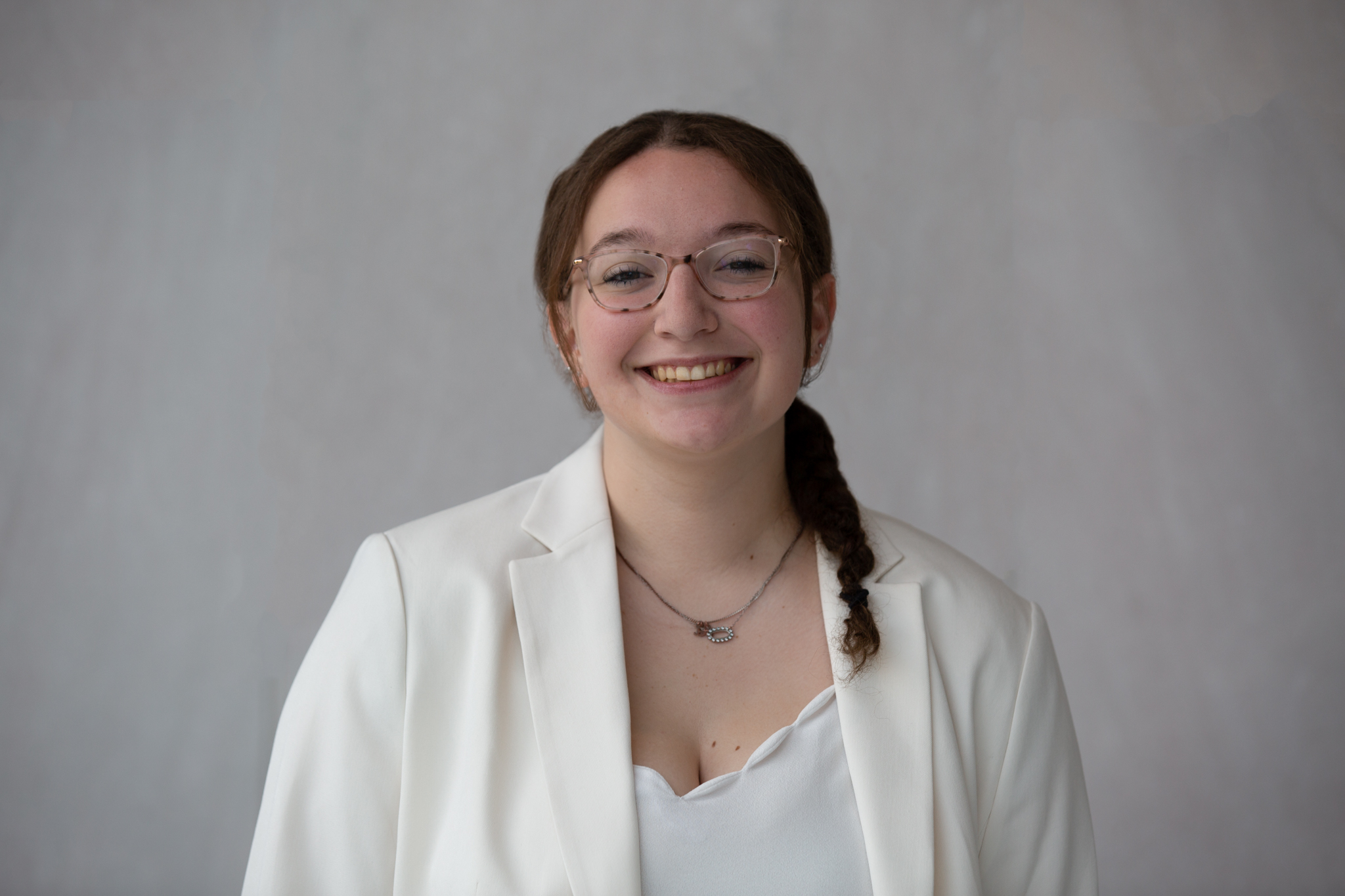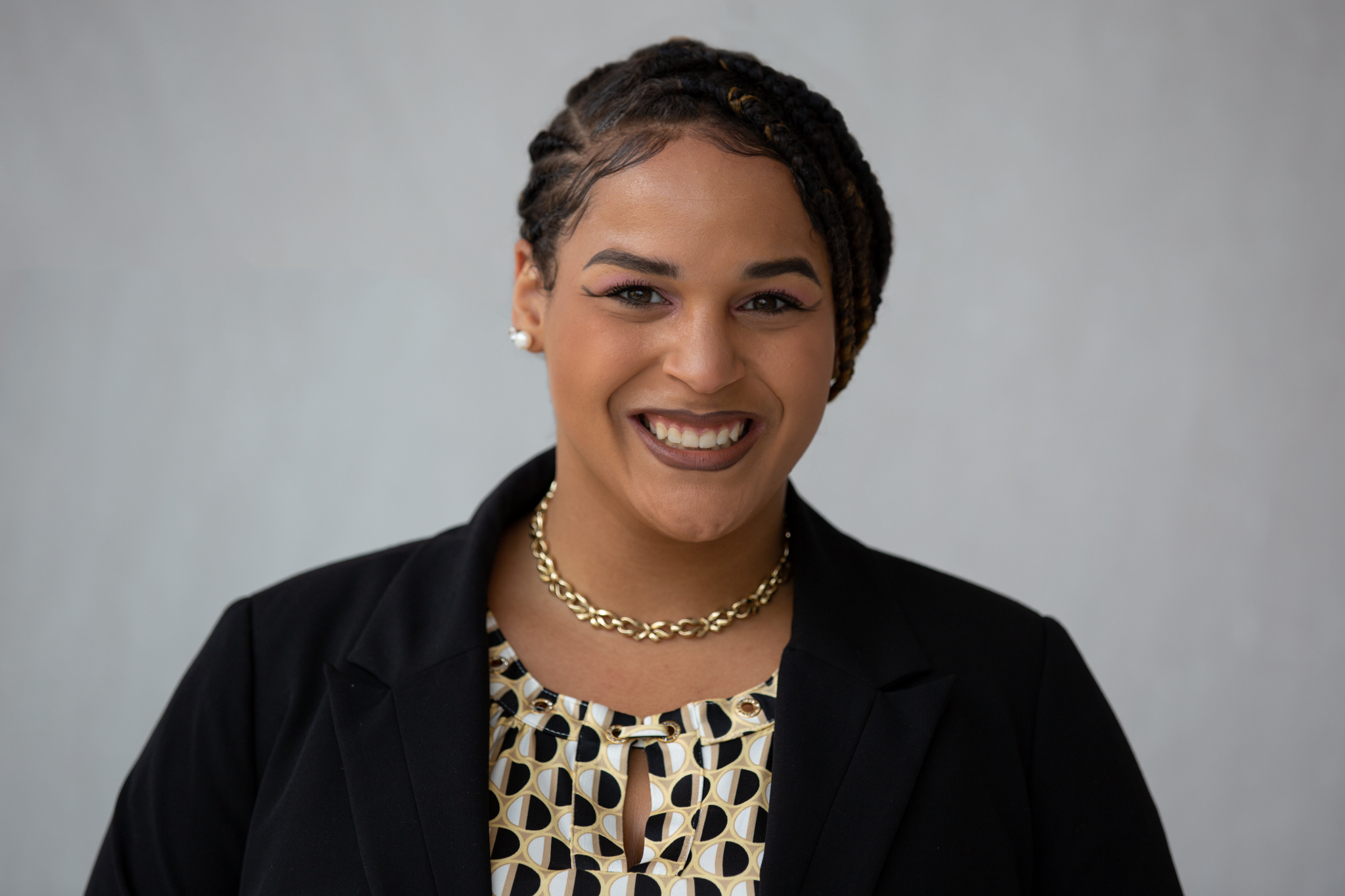Shadows and Bright Spots: Colombia's Developing Democracy
Colombia has defied a global trend towards democratic backsliding. Can it overcome the lingering threats to its civic space?

In a sea of declining democracies, there are occasional bright spots that shine apart from the rest.
A bright spot is a country that is becoming more free even as other countries are backsliding in its region. While comparing levels of democracy can be subjective, some NGOs attempt to categorize this system in a non-biased, fair way.
One of these bright spots is Colombia, which has recently been upgraded from "partially free" to "free," according to Freedom House's 2023 “Freedom in the World” report.
“Freedom of association is a bedrock of democracy. This is something that can apply to labor unions, to journalists associations, to religious groups and any other type of association.”
Freedom House measures the fluctuation of freedom by annually assigning each country a score based on how free their citizens are considered to be. The study countries’ levels of freedom using various criteria, including political participation, civil liberties, and personal autonomy.

An aerial view of Bogota, Colombia. | Photo by Random Institute on Unsplash
An aerial view of Bogota, Colombia. | Photo by Random Institute on Unsplash
Latin America’s Bright Spot
Colombia is surrounded by countries whose scores in the Freedom in the World have declined in recent years.
Its neighbors Peru, Brazil and Ecuador each lost one to two points in 2023, while Colombia’s score increased by six points compared to its 2022 rating.
Colombia may be persevering in a time of democratic backsliding, but it still has some areas where it has a long way to go.
Colombia scores much lower on indicators of freedom of assembly and freedom of association, including trade unions and other labor organizations, than its peer countries in the “free” category, scoring only two out of four on each.
The report expands on these results, attributing the scores to unfair treatment of citizens by the government, citing examples of officials referring to protestors as terrorists.
“[Colombia] really needs to shore up some of its fundamentals and continue to make forward progress so that it doesn’t join its neighbors in backsliding,” said Marti Flacks, director of the Human Rights Initiative at the Center for Strategic International Studies (CSIS).
Without substantial improvement in these areas, Colombia will remain at risk of losing their democratic gains.

Crackdowns on Protests
Colombians have room for improvement when it comes to their freedoms of protest and assembly. While these are constitutional rights, these freedoms are not always protected in practice.
Violence and police brutality have been consistently present at protests in recent history. This use of force to suppress protests poses a threat to Colombia’s rising position as a democratic bright spot.
Flacks noted that freedom of assembly is among the key factors of a healthy democracy.
“If people who are frustrated with government don’t have the ability to take to the streets peacefully and protest the actions of their government, they’re going to look for other ways to engage and to make change, including violence,” Flacks said.
Colombia’s low freedom of assembly score may indicate underlying institutional problems. A prominent example of Colombia’s failure to have an open civic space was a national strike that took place two years ago.
Colombia's National Strike
From April to June 2021, a national strike unfurled across the country. Colombians were frustrated with a potential overhaul to the tax system, so they took to the streets in protest.
Juliana Rubio, a program manager with the Americas program at CSIS, who is from Colombia, said the pandemic may have also contributed to discontent.
These protests were generally peaceful, but some civilians “disrupted supplies of essential goods and services” due to property damage and blockades, according to Freedom House.
In response, Colombian police killed and assaulted protesters.
According to the same report, police were responsible for at least 28 of the 44 protester deaths.
Human Rights Watch found that there were hundreds of other rights violations in the form of “assaults, sexual violence and scores of arbitrary detentions.”
Dangerous Rhetoric
During the 2021 protests, government officials also used rhetoric that labeled the protesters as “terrorists” and directed the blame away from the abusive law enforcement officers.
Adrian Shahbaz, vice president of research and analysis at Freedom House, said it is concerning when governments or actors “throw around” the label of “terrorist” when this term can often be “used to dehumanize and alienate people who are working for nonviolent democratic issues.”
“There are so many places where the label of terrorism then is used to smear political opponents or somebody who’s working on labor rights or on environmental rights, or even just on or expressing an opinion contrary to the government’s own narrative,” Shahbaz said.
“By labeling somebody a terrorist, you’re saying that they are no longer eligible for the types of democratic rights and protections that all citizens and residents have at their disposal.”
Steps Forward and Back
Due to the human rights abuses and attacks on expression in Colombia, Freedom House lowered Colombia’s freedom of assembly score in 2022.
This year’s Freedom House report restored the lost point after a year of decreased violence at protests. This means that the 2022 protests were largely peaceful compared to the brutal events of the previous year.
There have been many protests since the national strike, including a hostage situation in southern Colombia. BBC News reported that 79 police officers and nine oilfield workers were taken and eventually released.
A civilian and police officer were also killed during the protest.
Most recently, Colombians have peacefully marched in support of President Gustavo Petro and his labor reform efforts.
This mobilization on May Day, also known as International Workers’ Day, contrasts from the recent violence of Colombia’s past marches. It also illustrates the important role that labor organizations and other civil society groups have in Colombia’s democracy.
Obstacles to Organization
Colombia also has a struggle with freedom of association. An example of this comes in the form of restricted participation in labor unions.
Colombia is ranked one of the 10 worst countries for workers, according to the International Trade Union Confederation (ITUC). The organization also assigned Colombia a score of five on the Global Rights Index, suggesting the country has no guarantee of rights.
While Colombia has over 2,000 unions registered, only about 4.7 percent of the Colombian workforce participated in unions in 2022—one of the lowest rates in the world.

Unions and health workers stage a national strike to demand a response of Ivan Duque's government to stop violent actions, killings of social leaders, and restriction of social protest, among other issues in Bogota, Colombia on November 19, 2020. | Photo by Juancho Torres/Anadolu Agency via Getty Images
Unions and health workers stage a national strike to demand a response of Ivan Duque's government to stop violent actions, killings of social leaders, and restriction of social protest, among other issues in Bogota, Colombia on November 19, 2020. | Photo by Juancho Torres/Anadolu Agency via Getty Images
Violence Against Unions
Union organization tends to be lower in Colombia due to the violence surrounding the issue.
Colombia is one of the deadliest countries to be a worker or union member. The country has been ranked a five by the International Trade Union Confederation (ITUC) on their Global Rights Index, labeled as a country with no guarantee of rights.
One reason for this low rating is the continued violence against union members.
“In Latin America, many countries hold elections but violate civil liberties and Colombia has exemplified that,” Flacks said. “It continues to be very difficult for people to organize in both to operate as unions, but also as civil society organizations, to operate freely without being threatened.”
Since 1989, over 3,000 union members have been murdered.
Illegal armed groups in Colombia have continuously targeted activists and leaders, leaving members afraid to organize. In 2021 alone, 145 union leaders were murdered. Education, transport, mining, and energy sectors have been hit the hardest by this violence.
Many Colombians when considering whether to unionize or not face the possibility of death threats and violence. Threats against union workers in Colombia are the most common type of human rights violation in the country, making up 49.2% of violations regarding the right to life, freedom, and integrity, according to Escuela Nacional Sindical, an NGO that studies problems facing workers in Colombia.
“Police killed a lot of people and that was because we didn't have the right to protest,” said Juan David, a current resident of Colombia. “So if you were not in agreement with something, and you went to the streets to protest about it, you probably would get killed.”
Although these crimes continue, in 87% of these cases no one is brought to justice, according to Justice for Colombia. The country faces not only high rates of violence but also incredibly low rates of prosecution and justice in response.
“When I go to the police, there’s terrible corruption,” said Lola Arias, former psychologist in Colombia.
“They didn’t do anything, nothing.”

Labor Legislation
Despite these violent crimes, Colombia does have a multitude of legislation that has been passed as a way to protect workers' rights to unionize.
For example, Article 29 of Colombia’s 1991 constitution states that workers and employers are granted the right to form unions or associations without state intervention.
Outside of the constitution, the United States government along with the Colombian government passed the “Colombian Action Plan Related to Labor Rights” in 2011.
This plan’s main goal was to improve the protection of labor rights and to prevent violence against union members. The plan was agreed upon as a way to help deal with the violent situation currently taking place.
International Solidarity
Colombia’s unions are also supported by international organizations. Well known organizations such as the ITUC and the American Federation of Labor and Congress of Industrial Organizations (AFL-CIO) have expressed concern and identified the need for change regarding Colombia’s union climate.
These organizations have expressed support for Colombian unions and the rights that should be granted to organize without fear.

The AFL-CIO headquarters is shown in Washington, DC. | Photo by Paul J. Richards/AFP via Getty Images
The AFL-CIO headquarters is shown in Washington, DC. | Photo by Paul J. Richards/AFP via Getty Images
The Power of Civic Space
Civic space is essential for the health of a democracy. Without it, fundamental freedoms and human rights as we know them cannot exist. Colombia’s specific versions of civic space are an example of its importance globally.
The democratic values of Colombia’s government cannot be sustainable unless priority is placed on ensuring that these freedoms may be practiced.
“Democracy is the great coming together of all the different interests in a country, expressing them, working them out together and finding positive solutions to that,” noted Thomas Carothers, co-director of the Democracy, Conflict and Governance Program at the Carnegie Endowment for International Peace.
Fostering Political Participation
For a democracy to succeed, it must encourage its citizens to become active within the government. Teaching voters who their representatives are and how to vote in their best interests is essential to promoting democratic practices.
Unions are one way to encourage citizens to be active in politics, Carothers said. They can also serve as a form of representative pressure to the government.
“Unions are a form of interest expression, which is what democracy is really all about,” Carothers said.
Carothers noted that the expression of interests in an organized and consistent way is an effective way of making social progress. He similarly said that the rights to association and protest are an essential part of a healthy democracy.
“Without those rights, unions are simply a shadow of what they really can be as a form of expressing citizens' interests,” Carothers said.
Encouraging a Productive Society
Substantive civic engagement fosters a more productive society.
When unions advocate for their workers and earn increased compensation, the higher wages make their jobs more attractive and therefore more competitive.
“You're going to get more productive policies in that sector because the people who are key to performing them are going to be part of the solution rather than excluded from it,” Carothers said. “They're going to be motivated. They're going to be bought into the system.”
Freedom of unionization facilitates democracy and encourages economic change, Flacks said. She believes the ability to unionize in workplaces and engage employers can help address inequality throughout society.
“Democracy is about political rights and freedoms, but it’s also about how people feel they are doing in terms of their economic security and the ability to engage companies and employers and the ability to organize as unions,” Flacks said. “Those underpinnings are sort of the building blocks of democracy.”
Unionizing for Democracy
Unions are one of the pillars of democracy. When their representation begins to shift, democracy as a whole becomes unbalanced.
“Trade unions have played a fundamental role in terms of getting people organized on the streets and even an effective platform for calling for greater democratization and human rights across a variety of different issues,” Shahbaz said.
Through the healthy implementation of unions, governments can communicate with their citizens and more accurately represent their interests. When people cannot exercise this right, democracy weakens.
In previously struggling countries, backsliding is usually driven by a leader, party, or government that wants to amass a tremendous amount of control. These powerful groups not only fear legal institutions which challenge them but also citizens who protest on the street, Carothers said.
“Unions are one of the clearest institutions supporting the assertion by citizens of their interests and of their rights,” Carothers said.
“Citizens should have the sense that democracy is a field of possibilities, not a field of limitations."
Featuring interviews with Gilberto "Junior" Duque and Juliana Rubio
Background Music via Artlist.io - "Everything Reminds Me Of You" by Idan Balas
What's Next for Civic Spaces?
Gustavo Petro, Colombia’s recently elected president, campaigned with promises of expanding social programs, raising taxes on the wealthy, fighting climate change, fortifying peace with armed militant groups, and eradicating violence—especially against social leaders.


U.S. President Joe Biden (R) meets with Colombian President Gustavo Petro in the Oval Office of the White House April 20, 2023 in Washington, DC. | Photo by Drew Angerer via Getty Images
U.S. President Joe Biden (R) meets with Colombian President Gustavo Petro in the Oval Office of the White House April 20, 2023 in Washington, DC. | Photo by Drew Angerer via Getty Images
Securing Peace
Since Petro’s inauguration, he has reaffirmed a commitment to the 2016 peace deal with the Revolutionary Armed Forces of Colombia (FARC) to achieve what he calls “total peace.” His plan includes a six-month truce with Colombia’s five largest armed groups as well as a framework for negotiations with these groups and reduced prison sentences for those who cooperate.
The need for security is paramount to the government’s ability to put new reforms into practice. “It's very unfortunate that if you don't have security—even if you have great policies and protections under the law—if there's no law and you can't do much,” Rubio said.
The potential of support from the United States in establishing greater security around the country has created some hope for Colombians, especially after a meeting between Presidents Joe Biden and Gustavo Petro. According to a report from the U.S. Congressional Research Service, the United States has a history of supporting improvements in security in rural Colombia but will wait to see how peace negotiations between the government and organized crime groups go before committing to further aid.
Concerns over this plan include worries about pardoning criminals and renewed violence after the six-month period. Additionally, Petro’s cabinet has seen a divide over disagreements on proposed health and pension reforms. This division could result in greater difficulty in implementing peace agreements and future reforms.
National Development Plan
Petro has also proposed a four-year National Development Plan, which includes goals such as police reform, including the elimination of the Mobile Anti-Disturbance Squadron (ESMAD), a riot control unit of Colombia’s police force. ESMAD has contributed to violence against protesters and union strikes in the past.
According to the plan, a new unit will be created to intervene in conflict situations with peaceful and intelligent solutions. Additional reforms include strengthening citizen participation and oversight of the police.
The plan has been approved by Colombia’s Congress as of May 5.
Colombia's National Development Plan (2022-2026):
1. What is the plan?
The plan will strive to improve living conditions in Colombia and fully implement the country's 2016 Peace Accord as part of President Petro's goal of "total peace" in the country.
2. What does the plan focus on?
There are five focus points: conservation, social justice, food security, climate change and regional convergence.
3. What's the budget?
Nearly $250 billion USD.
4. How has the public responded?
Many Colombian citizens have supported the plan by using the hashtag #ElPlanDeLaGente - or "the plan of the people."
Looking Ahead
While the Petro administration has offered hope for Colombia’s progress, one administration alone may not be enough to create lasting change in the country.
“It’s really important not to put too much emphasis on any individual leader who might get elected . . . a single election and a single leader is not going to be the sole determining factor of whether a country is successful,” Flacks said. According to Flacks, a major challenge is managing citizen expectations about what can be achieved during one term in office.

Uphill Battles
Colombia is a bright spot globally for its improvements to its democracy. Despite having a long way to go in protecting fundamental freedoms, Colombians take great pride in their country and hope for continued progress.
“I always feel proud of my country,” said Junior Duque, a Colombian resident. “It’s a beautiful country. Kind of sad, because of the perception that people have about Colombia now, but trust me that Colombia is a paradise.”
During protests in Bogota in November and December of 2019, protestors played drums for the crowd that gathered. (Video provided and captured by Juliana Rubio who participated in the protests).
During protests in Bogota in November and December of 2019, protestors played drums for the crowd that gathered. (Video provided and captured by Juliana Rubio who participated in the protests).
Authors
Special Thanks:
- The Stavros Niarchos Foundation (SNF)
- Professor Kathy Kiely, University of Missouri
- CSIS iDeas Lab team mentors/staff:
Story: Mark Donaldson & Marla Hiller
Video: Michael Kohler
Audio: Cera Baker
Data: Jaehyun Han
Editorial: Mark Donaldson & Sarah Grace - CSIS AILA staff: Julieze Benjamin & Erin Delany
- AILA management: Nina Tarr & Donatienne Ruy
Photo Credits:
- Header photo by Diego Cuevas via Getty Images










